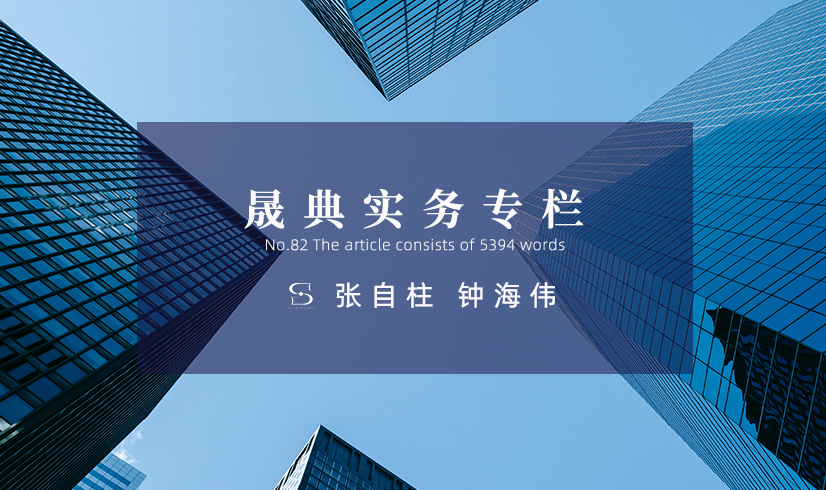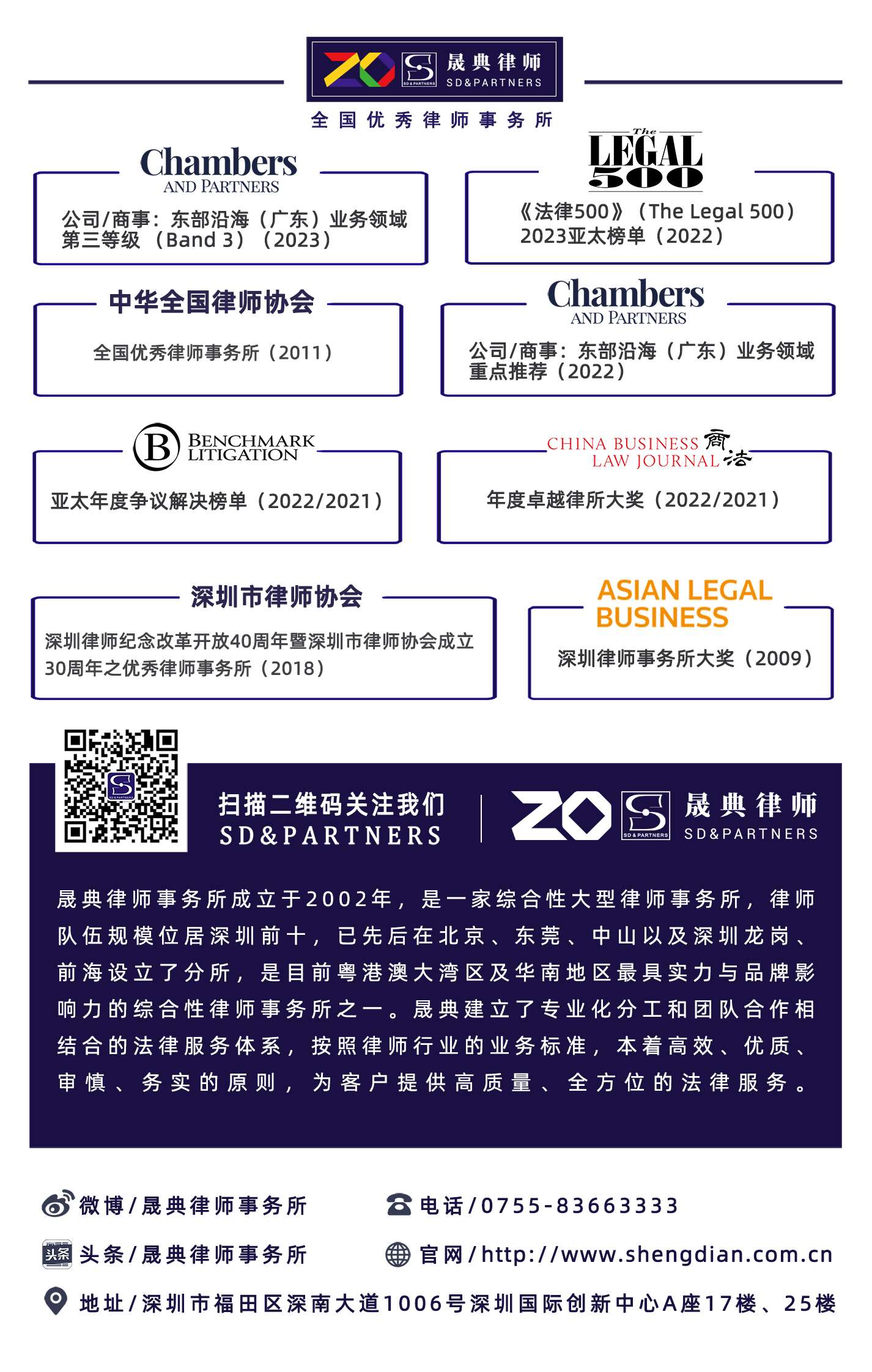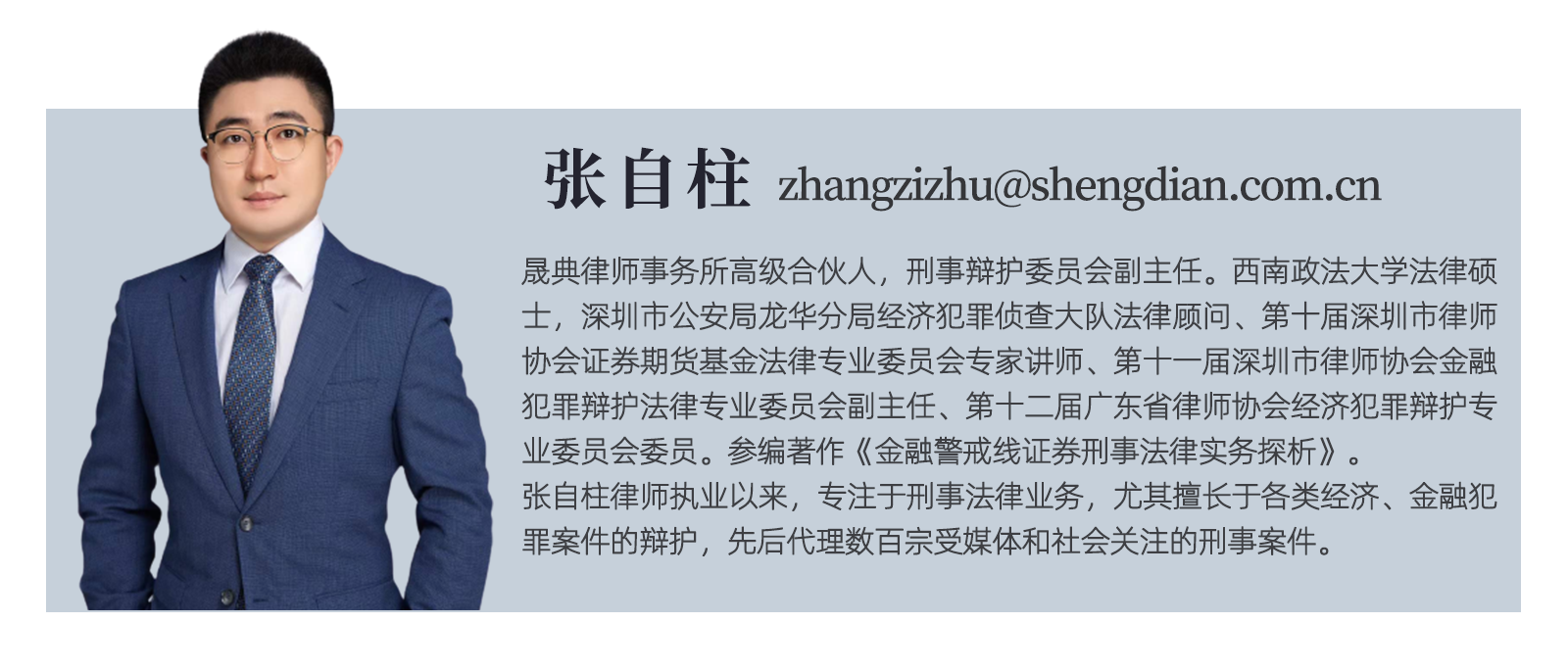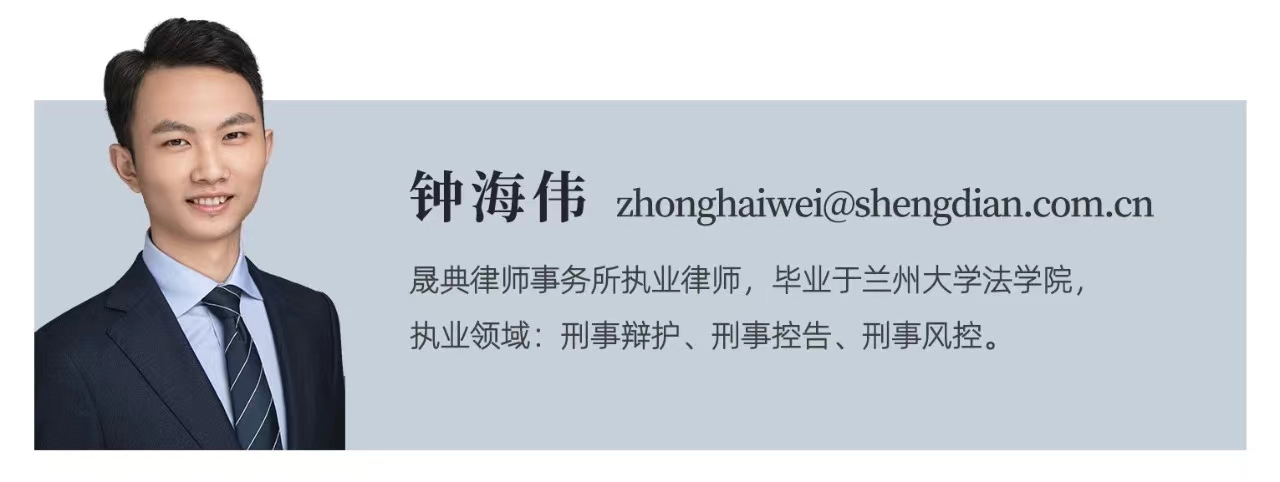On the criminal punishability of "follow-up" rat trading
 Loading...
Loading...
 2023.02.17
2023.02.17

1. What is a "follow" rat warehouse?
"Rat warehouse" generally refers to the illegal and illegal behavior of using undisclosed information to trade. The most typical "rat warehouse" behavior is that fund managers and other financial institution practitioners use their knowledge before using their own customer funds to buy securities products. Institutional investment decision-making and other information, preemptively build positions, and take the lead in closing positions after trading with customer funds to raise the price of securities, and seek benefits from it, this "rat warehouse" is often called "preemptive trading". However, with the development of China's securities market, the concept of "rat warehouse" at the current regulatory level is no longer limited to the traditional "preemptive trading. At present, China's securities regulatory authorities mainly use the big data analysis system to investigate and deal with the "rat warehouse" behavior, and gradually develop the theory of "convergence trading" in practice, that is, as long as the securities regulatory authorities through data comparison and analysis, it is determined that the transaction is highly convergent with the transactions of related funds and other institutions, the transaction will generally be investigated and dealt, the convergence transaction situation is used as an important basis for determining the existence of transactions using undisclosed information. Regarding the time standard for convergence transactions, the "first five and second" criteria are generally used in practice, that is, the first five of the trading days of related funds and other institutions. Working days and two working days after.
In practice, it is common to use the "top five and two" standard to identify convergent transactions, including transactions after the trading day of funds and other institutions, which leads to those transactions that are later traded by funds and other institutions may also be identified as convergent transactions, which may eventually be identified as trading using undisclosed information. When it comes to convergence trading after the trading day of institutions such as funds, one has to mention "follow-on" rat trading. The so-called "follow-up" rat trading, also known as "imitation trading" rat trading, refers to the use of follow-up strategies, imitating the trading strategy of funds and other institutions. In practice, people may imitate the trading strategies of institutions such as funds for a variety of motives, such as the pursuit of well-known funds or online red fund managers, or the trust in the decision-making level or investment vision of funds and other institutions, believing that the value of the stocks they choose is undervalued. The biggest difference between the "follow-up" rat trading and the aforementioned "pre-emptive trading" and other rat trading behavior is that although the "follow-up" rat trading also uses the undisclosed information of financial institutions such as funds, its trading is completely later than the trading time of financial institutions such as related funds.
According to the relevant provisions of the fourth paragraph of Article 180 of the Criminal Law of our country on the crime of using undisclosed information to trade, the perpetrator who constitutes the crime should be a special subject with the convenience of obtaining undisclosed information. Within the scope of special subjects, they can be divided into two types of subjects according to their directness of contact with undisclosed information. One type is "master subject", that is, personnel in relevant institutions who can directly contact and know undisclosed information; One type is "follow-up subject", that is, the above-mentioned "master subject" cannot directly contact or master undisclosed information, entities that need to know about the buying and selling of the market through other means, and the undisclosed information obtained by such entities is generally lagging, such as the existence of double-named fund managers in fund companies, or computer technicians in secret-related positions in the company. Take the case of Tu Xin and Tu Jian using undisclosed information transaction tried by Shenzhen Intermediate People's Court and Guangdong High People's Court successively as an example. Tu Jian is an employee of Shenzhen Branch of China Securities Depository and Clearing Co., Ltd., who uses the securities account inquiry authority in the company's securities account management position, after knowing the undisclosed information such as stock ownership and changes of relevant trust products and asset management products of financial institutions, with another actor Tu Xin convergence to buy stocks. In this case, as an employee of the Shenzhen branch of China Securities Depository and Clearing Co., Ltd., Tu Jian only used his position authority to inquire about the undisclosed information that has been formed and executed. He is a typical "follow-up subject" and he is also engaged in a typical "follow-up transaction".
2. Attitudes of current judicial practice towards "follow-on" rat trading
As mentioned earlier, at present, China's securities regulatory authorities mainly through big data to investigate and deal with the use of undisclosed information trading behavior, as long as the actor's trading behavior and related funds and other institutions trading convergence, it may be identified as the use of undisclosed information trading. In addition, in China's current practice, the time standard of "first five and second two" is widely used in identifying convergence transactions, resulting in suspicious transactions before and after transactions by related funds and other financial institutions may be identified as using undisclosed information to trade. From this point of view, China's regulatory practice does not seem to distinguish the specific types of rat warehouse, that is, under the current identification mode, "following" rat warehouse trading seems to be no different from "preemptive trading". In the case of meeting the relevant filing standards, both cases will be investigated for criminal responsibility, and the relevant cases retrieved by the author also confirm this judgment.
In addition to the above-mentioned crimes of Tu Xin and Tu Jian using undisclosed information to trade, the author also retrieved the following cases of "follow-up" rat warehouse transactions being investigated for criminal responsibility.
1. Baiyun's use of undisclosed information transactions
In this case, Baiyun used the convenience of being a trader of Century Securities Co., Ltd. and being able to receive orders from the company's investment fund manager, and after obtaining the company's trading orders, he violated the regulations and used the relative's account to conduct convergent transactions on the same day or the second or third day. The public security organs calculate their convergent transactions and profits in accordance with the "first zero and second" calculation criteria. Shenzhen Intermediate People's Court determined that Baiyun constituted the crime of using undisclosed information to trade.
2. Du Changjiang's use of undisclosed information transactions
In this case, Du Changjiang took advantage of his position as the investment manager of the financial management and investment department of China Merchants Securities Asset Management Headquarters, and used the non-public information of stock trading in the 26 targeted asset management business accounts he was responsible for managing to operate the 8 accounts under his control to trade related stocks simultaneously or slightly later than the targeted asset management business accounts under his management. Du Changjiang said that the specific method of using undisclosed information to trade is "follow-up investment", that is, follow-up and follow-up. Both the Shenzhen Intermediate Court and the Guangdong High Court found that Du Changjiang constituted the crime of using undisclosed information to trade.
3. The case of Wang Peng, Wang Huiqiang and others using undisclosed information to trade.
In this case, Wang Peng took advantage of his work as a bond trader in the trading management department of Huaxia Fund Management Co., Ltd. to check the direction of securities trading, investment category, securities code and other information through his personal account, and informed Wang Huiqiang and others of the information to use the undisclosed information to engage in securities trading. The First Intermediate People's Court of Chongqing City found that Wang Peng and others constituted the crime of using undisclosed information to trade.
Through the above several typical "follow-up" rat warehouse trading cases, it can be seen that China's judicial practice still treats "follow-up" rat warehouse trading as the crime of trading with undisclosed information, and as mentioned earlier, China's practice does not specifically distinguish the types of rat warehouse, as long as the relevant behavior meets the conditions such as convergence trading, it will be found to constitute the crime of trading with undisclosed information.But in fact, as mentioned later, there are obvious differences in behavior performance and social harmfulness between typical rat warehouses such as "following" rat warehouse trading and "preemptive trading". In practice, the social harmfulness of specific behaviors is not considered, and the practice of conviction and punishment is open to question.
3. "Follow-on" rat trading is not criminally punishable.
(I) The criminal punishability basis of rat warehouse transactions.
To analyze whether the "follow-up" rat warehouse transaction is criminally punishable, we must first clarify the social harmfulness of the "rat warehouse", that is, why the criminal law should establish the crime of using undisclosed information to trade. Huang Taiyun, deputy director of the Criminal Law Office of the Legal Work Committee of the Standing Committee of the National People's Congress, pointed out in the article "Interpretation of the (VII) of the Criminal Law Amendment": "Some fund companies, securities, futures, insurance companies and other asset management institutions are mainly institutional managers, Traders, before using customer funds to buy financial products such as securities or their derivatives, futures or options contracts, in their own name, or in the name of others, or inform their relatives, friends, and related households to buy financial products such as securities and futures at low prices first, and then use the client's funds to pull up to a high level and then sell them first to make profits, so that individuals can make huge profits at a relatively low cost... Most of their profit sources are actually the transfer of fund assets (that is, the funds of the people)... It (rat warehouse) seriously destroys the order of financial management, it damages the fairness, justice and openness of the market, seriously damages the interests of customers and investors, seriously damages the reputation of the financial industry, thus affecting the trust of investors in financial institutions, and in the end, it also damages the interests of the units where employees work. If not severely punished, it will severely affect the healthy development of asset management and fund, securities and futures markets."
From the above-mentioned legislative background materials, it can be seen that the crime of using undisclosed information to trade was originally aimed at the "preemptive trading type" rat warehouse, while the legal interests of using undisclosed information to trade are mainly divided into two parts, one is to damage the interests of investors, and the other is to damage the reputation of the financial industry. Therefore, to determine whether the "follow-up" rat warehouse transaction has criminal punishability, it is necessary to analyze whether it is like the "preemptive trading" rat warehouse, whether it also damages the interests of investors and the credibility of the financial industry.
(II) "Follow-up" rat warehouse trading is different from the general "rat warehouse" trading behavior, social harm is small, lack of criminal penalties.
The reason why the traditional "preemptive trading" rat warehouse harms the interests of investors is that the actor buys the financial product before the customer funds buy it, which may increase the price of the financial product, increase the cost of the subsequent customer funds to buy the financial product, and transfer the profits that should belong to the customer to the actor in disguise, the act of raising the price of the financial product with customer funds and then taking the lead in selling it for a profit transfers the risk of investment to the customer investor. As far as "follow-up" rat trading is concerned, since the relevant transactions are carried out after the completion of institutional transactions such as funds, no matter how large the size of the rat trading and how it affects the stock price, it has nothing to do with the fund. At this time, the "rat trading" may even raise the stock price, which is beneficial to fund property and fund share holders. Therefore, from this point of view, the "follow-up" rat trading will not harm the interests of other investors, and it is unreasonable to regard the damage to the interests of investors as the criminal punishable basis of the "follow-up" rat trading.
Since the view that "follow-up" rat trading directly harms the interests of investors is not established, what needs to be examined is whether "follow-up" rat trading damages the credibility of the financial industry. It must be affirmed that as long as fund managers and other financial institution practitioners use their positions to facilitate access to undisclosed information to engage in related transactions, regardless of whether they actually harm the interests of investors, their actions will endanger investors' trust in financial institutions and their practitioners., Damage the credibility of the financial industry. However, when studying the issue of criminal punishability, it is necessary to further explore the essence behind the so-called credibility of the financial industry and the trust of investors in financial institutions or financial practitioners.
For investors, they expect to be in a fair and just market environment, and expect that the assets entrusted to funds and other financial institutions can be managed diligently by professionals; for funds and other financial institutions and their employees, their greatest responsibility It is to manage the assets entrusted to you by customers, and strive to maintain and increase the value through your own professional capabilities. However, due to the huge information asymmetry between investors and financial institution practitioners, financial institution practitioners may act to harm the interests of customers in the process of managing customer funds, resulting in moral hazard. Therefore, the so-called credibility of the financial industry is not an empty concept. The essence behind it is actually to require financial institutions and their employees to perform their duties of loyalty and diligence, and not to harm the interests of investors. If the specific behavior of financial institutions and their employees has been proved impossible to harm the interests of investors, even if their behavior makes investors or the public shake their trust and damage the credibility of the financial industry, the shaking of trust and the so-called damage to the credibility of the industry still lack substantive basis, and the behavior of relevant employees still lacks criminal punishability due to the lack of substantial social harm.
In addition, it is also argued that after a financial institution buys or sells a stock, the effect of the transaction on the trading price of the securities has a certain duration, and the account involved in the relevant transaction during this period can also achieve the effect of profit or loss avoidance. The logic of this view is consistent with the conviction logic of insider trading, that is, it is believed that the perpetrator uses his position to facilitate the acquisition of undisclosed information before the disclosure of undisclosed information that has a significant impact on the price of securities transactions. The behavior of related transactions has gained improper advantages in the capital market and harmed the normal market order. However, the author believes that from the actual situation of the use of undisclosed information trading cases, it is not feasible to use this reason as the criminal penalty basis for "follow-up" rat warehouse trading. Although the theory generally regards "price sensitivity" as the characteristic of undisclosed information, unlike insider trading cases, in practice, it is extremely rare for securities regulatory authorities and judicial organs to demonstrate the impact of undisclosed information on securities prices in such cases. As some commentators pointed out, "we have to admit that due to the difficulty of proof, the judgment value of this feature (price sensitivity) in judicial practice has actually been weakened". In addition, even institutional investors may in fact find it difficult to influence the price of securities for a variety of reasons, such as the small size of institutional transactions and the large volume of stocks traded that are large-cap stocks. Therefore, if it is believed that the "follow-up" rat trading is similar to insider trading, and the perpetrator has obtained an improper advantage over ordinary investors, and this is the basis of its penalty, it will face judicial proof in practice. Difficulties, that is, it is difficult to prove that the undisclosed information involved in the case has an impact on the prices of securities and futures, or even if the causal relationship can be proved, this reason also does not provide a basis for criminal penalties for all "follower" rat trading.
Therefore, the author believes that there is an obvious difference between the "follow-up" rat warehouse transaction and the general "rat warehouse" behavior. The former does not have obvious social harm. At present, judicial practice does not make a specific distinction between the types of rat warehouses. The practice of investigating the criminal responsibility of the "follow-up" rat warehouse transaction is questionable.
(III) Can regulate "follow-up" rat trading through administrative penalties.
As mentioned earlier, even if the "follow-up" rat trading will not cause harm to investors, but after all, for investors, it is completely reasonable for them to put forward certain moral requirements for the professionals who manage their own assets, and professional financial practitioners should also have their own professional ethics. Although the "follow-up" rat trading did not actually cause damage to investors, it did shake the trust of investors in financial institutions and their employees, damaged the credibility of the financial industry, and ultimately had a negative impact on the entire industry in which the perpetrators themselves were located.
Therefore, the author believes that although it does not have obvious social harm, only the negative impact on the actor's own industry is not enough to be used as the basis for investigating the criminal responsibility of the actor engaged in the "follow-up" rat warehouse transaction, but in order to maintain the financial The healthy development of the industry is indeed necessary to regulate this behavior.In fact, in addition to the Criminal Law, Article 54 of my country's Securities Law also clearly prohibits employees of securities companies and other financial institutions, staff of relevant regulatory agencies or industry associations from using undisclosed information to trade. Article 191 also stipulates the corresponding legal consequences. Article 54 of the Securities Law is basically consistent with the provisions of paragraph 4 of Article 180 of the Criminal Law on the use of undisclosed information in the securities market, which is sufficient to effectively regulate "follow-up" rat trading.
To sum up the above,The author thinksThe most essential feature of crime is its social harmfulness. Criminal law, as the department law with the most severe legal consequences, should sanction those behaviors with obvious social harmfulness. However, the "following" rat warehouse trading behavior does not reflect obvious social harmfulness and lacks criminal punishability. Generally, it should not be treated as a crime. Under the current legal system of our country, the administrative responsibility of those who engage in "follow-up" rat trading is sufficient to achieve the purpose of regulation.
Comments
1 Lu Yu: "Accurate Judgment of Convergence Trading Time Points to Combat" Rat Warehouse "Crime", Procuratorial Daily, 7th Edition, February 23, 2021.
Case No. 2:(2018) Yue Xing Zhong No. 479.
Case No. 3:(2018) Yue 03 Xing Chu 681.
Case No. 4:(2020) Guangdong Xing Zhong No. 436.
Case No. 5:(2015) Yu Yizhong Fa Xing Chu Zi No. 00162.
6 Huang Taiyun: Interpretation of the (VII) of the Criminal Law Amendment, People's Procuratorate, No. 6, 2009.
7 Peng Bing, "Redefining the" Rat Warehouse "-Reflections on Sports Securities Regulation", Tsinghua Law, No. 6, 2018.
8 Wang Tao and Tang Linlin: "Criteria for Determining the Crime of Trading with Undisclosed Information", Law, No. 2, 2013.
9 Pan Yonglu, "Rules of Judgment and Standards of Evidence for the Crime of Trading with Undisclosed Information", People's Justice, early August 2021 (total No. 933).
(This article has been published in the 98th issue of "Shenzhen Lawyer" magazine)
Introduction to the Author

![]() Loading...
Loading...![]() 2023.02.17
2023.02.17




